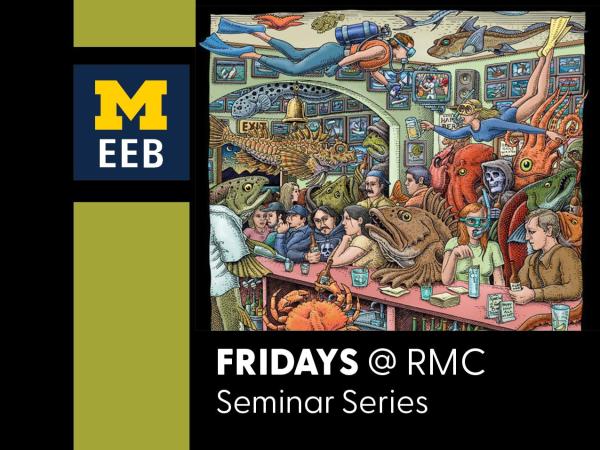Fridays @ RMC Seminar Series - Diving Deep: Leveraging Museum Collections to Understand the Drivers of Fish Biodiversity in a Changing Planet
with Adela Roa-Varón, National Museum of Natural History, Smithsonian
This is part of our monthly seminar series at the RMC.
Preview: Museums play a pivotal role in scientific research by granting access to vast collections of biological specimens. A few years ago, the cost of sequencing genomes was prohibitively expensive. However, with advancements in technology and economies of scale, the prices have significantly dropped. As a result, we are now able to sequence the genomes of hundreds of species using techniques such as exon capture, genome skimming, and soon chromosome-level genomes. Our current challenge lies in bridging the gap between traditional museum collections and modern genetic research. This integration opens new avenues for scientific discovery and conservation efforts, ultimately contributing to our understanding of biodiversity and ecosystem conservation.
In this presentation, I'll take you on a journey through my career, highlighting the pivotal role of museum personnel and museum specimens in shaping my interdisciplinary research program focused on the evolution and systematics of marine fishes, with an emphasis on gadiforms and other commercially important species. Utilizing voucher specimens and associated materials such as tissue samples and otoliths, I am investigating how evolutionary patterns and the underwater environment influence the genomic diversity and connectivity of marine fishes. These findings are communicated to management agencies and other stakeholders, providing valuable insights for monitoring and conservation projects. Additionally, I will emphasize how my research intertwines with outreach and education efforts, aiming to not only advance scientific knowledge but also foster a sense of stewardship for our oceans within and beyond the museum walls.
Preview: Museums play a pivotal role in scientific research by granting access to vast collections of biological specimens. A few years ago, the cost of sequencing genomes was prohibitively expensive. However, with advancements in technology and economies of scale, the prices have significantly dropped. As a result, we are now able to sequence the genomes of hundreds of species using techniques such as exon capture, genome skimming, and soon chromosome-level genomes. Our current challenge lies in bridging the gap between traditional museum collections and modern genetic research. This integration opens new avenues for scientific discovery and conservation efforts, ultimately contributing to our understanding of biodiversity and ecosystem conservation.
In this presentation, I'll take you on a journey through my career, highlighting the pivotal role of museum personnel and museum specimens in shaping my interdisciplinary research program focused on the evolution and systematics of marine fishes, with an emphasis on gadiforms and other commercially important species. Utilizing voucher specimens and associated materials such as tissue samples and otoliths, I am investigating how evolutionary patterns and the underwater environment influence the genomic diversity and connectivity of marine fishes. These findings are communicated to management agencies and other stakeholders, providing valuable insights for monitoring and conservation projects. Additionally, I will emphasize how my research intertwines with outreach and education efforts, aiming to not only advance scientific knowledge but also foster a sense of stewardship for our oceans within and beyond the museum walls.
| Building: | Research Museums Center |
|---|---|
| Event Type: | Workshop / Seminar |
| Tags: | AEM Featured, Biology, Biosciences, Bsbsigns, department of ecology and evolutionary biology, Discussion, ecology, Ecology & Biology, Ecology And Evolutionary Biology, eeb, Herbarium, Museum Of Zoology, zoology |
| Source: | Happening @ Michigan from Ecology and Evolutionary Biology, Program in Biology, EEB Thursday Seminars, Research Museums Center |


